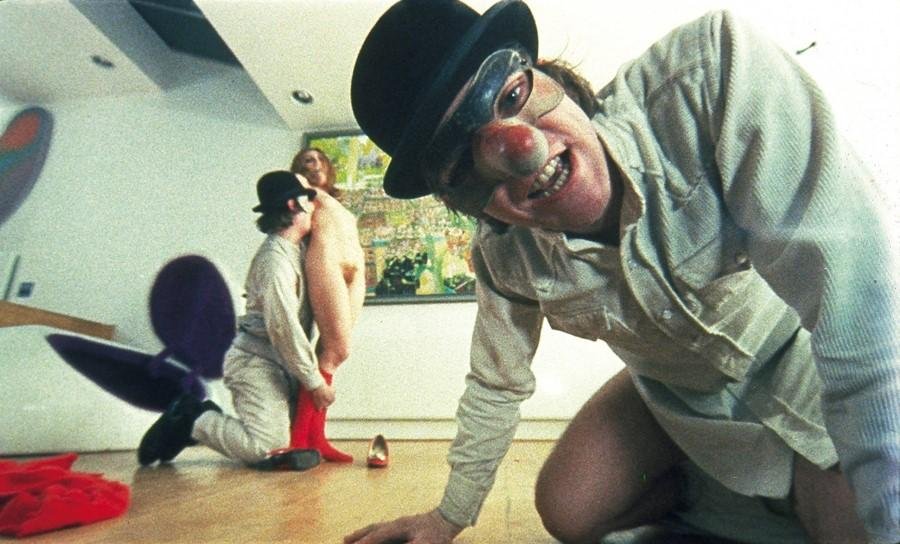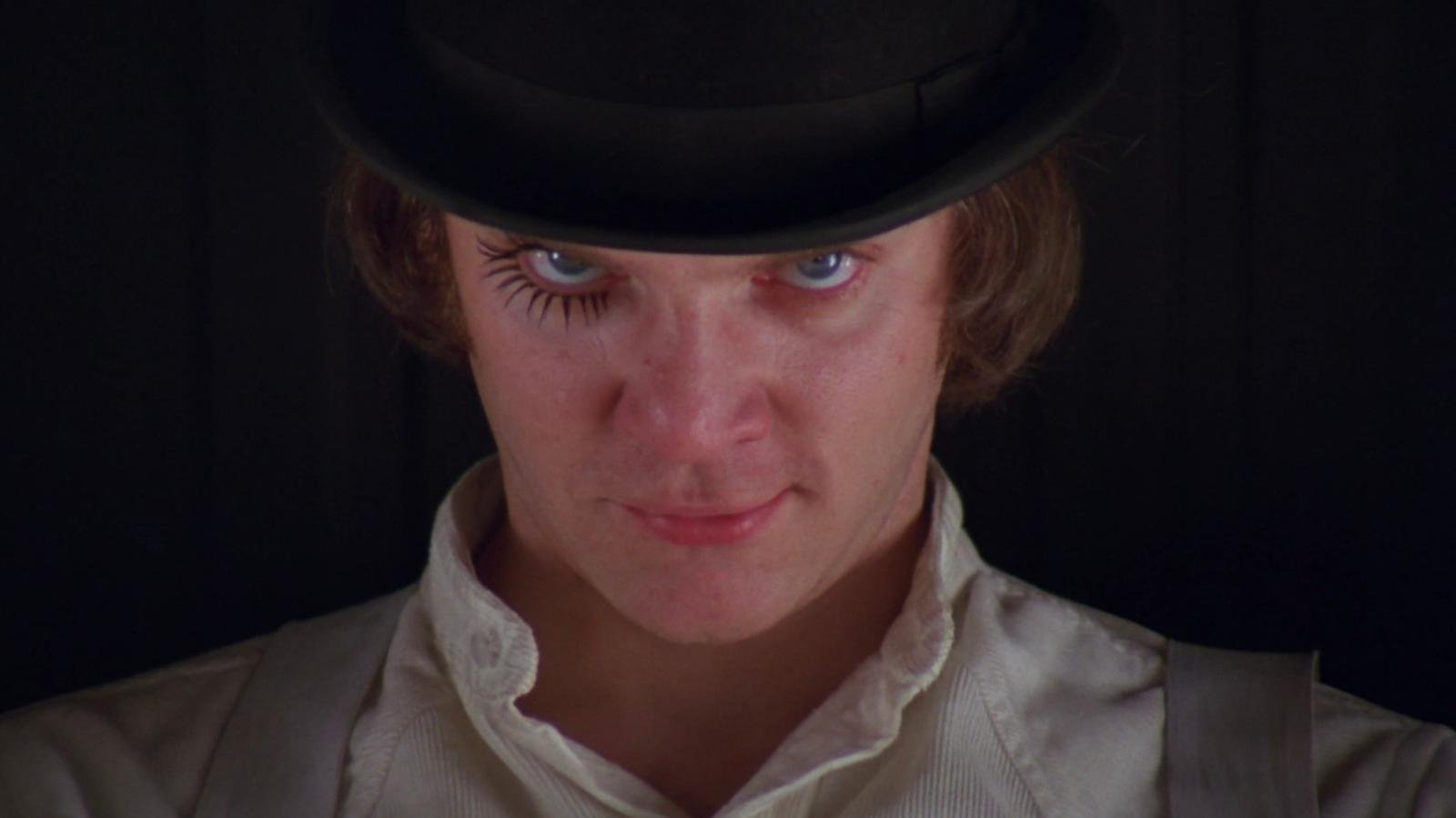The Controversial Brilliance of Stanley Kubrick’s ‘A Clockwork Orange’
Stanley Kubrick‘s ‘A Clockwork Orange’ is a cinematic masterpiece that has left an indelible mark on film history. The movie, based on Anthony Burgess’s novel of the same name, is a brutal and unflinching portrayal of a dystopian society where crime and violence reign supreme. However, the film’s intense and controversial subject matter has sparked countless debates about its artistic merit and social message. Some critics have hailed it as a brilliant and thought-provoking work of art, while others have condemned it as morally reprehensible and dangerous. In this article, we will delve into the controversy surrounding Stanley Kubrick’s ‘A Clockwork Orange.’
Stanley Kubrick‘s ‘A Clockwork Orange’ is a cinematic masterpiece that has left an indelible mark on film history. The movie, based on Anthony Burgess’s novel of the same name, is a brutal and unflinching portrayal of a dystopian society where crime and violence reign supreme. However, the film’s intense and controversial subject matter has sparked countless debates about its artistic merit and social message. Some critics have hailed it as a brilliant and thought-provoking work of art, while others have condemned it as morally reprehensible and dangerous. In this article, we will delve into the controversy surrounding Stanley Kubrick’s ‘A Clockwork Orange.’

Introduction
In the world of cinema, few filmmakers have left a lasting impact quite like Stanley Kubrick. His visionary approach to storytelling and direction have earned him countless accolades and legions of devoted fans. However, one of his most controversial works, “A Clockwork Orange,” remains a topic of passionate debate for film enthusiasts to this day. Despite being released over four decades ago, the film’s themes of violence, sexuality, and morality continue to spark conversations about art, censorship, and the limits of creative expression. In this article, we will explore the controversy that surrounds Kubrick’s “A Clockwork Orange” and its enduring legacy in the world of cinema.
The source material
The source material for Stanley Kubrick’s A Clockwork Orange controversy is derived from the eponymous novel by Anthony Burgess. The novel delves deep into the themes of violence, free will, and morality, which were all brought to the forefront in the film adaptation directed by Kubrick. Despite its critical acclaim, the movie was accused of glorifying violence and was banned in several countries. The controversy around the film remains to this day, making it a topic of interest for cinema lovers and scholars alike.
The film’s content
The film’s content of Stanley Kubrick’s A Clockwork Orange is a controversial masterpiece that explores the themes of violence, free will, and morality. The story follows the journey of protagonist Alex as he is subjected to a controversial form of rehabilitation that aims to cure him of his violent tendencies. This film sparked a lot of controversy upon its release due to its disturbing content and graphic depictions of violence. However, its thought-provoking exploration of human nature and societal control has made it a classic in the world of cinema.

The film’s reception
The film’s reception of Stanley Kubrick’s A Clockwork Orange was met with intense controversy upon its release in 19 The movie’s explicit depictions of violence and sexual assault were considered too graphic for many viewers and led to calls for censorship. Despite this, the film was also praised for its artistic merit and thought-provoking social commentary. Kubrick’s skillful direction and the standout performances from actors like Malcolm McDowell helped cement A Clockwork Orange as a cult classic, but its controversial content continues to divide audiences to this day.
The film’s impact
The impact of Stanley Kubrick’s A Clockwork Orange in cinema history is undeniable. The film’s controversial nature sparked a heated debate around the world, with some condemning it for its violent and sexual content, while others praised it for its artistic and social commentary. Despite its controversial reception, the film’s influence on popular culture cannot be denied. From its striking visual style to its iconic soundtrack, A Clockwork Orange has become a cultural touchstone, inspiring countless filmmakers and artists over the years. Even today, the film still has the power to shock and provoke, making it a testament to Kubrick’s enduring legacy as one of cinema’s greatest auteurs.
The censorship debate
The controversial film “A Clockwork Orange” directed by Stanley Kubrick reignited the debate on censorship in cinema. The film’s graphic depiction of violence and rape sparked outrage among critics and audiences alike. However, Kubrick defended his artistic vision, arguing that censorship should not restrict artistic expression. The debate on censorship in cinema continues to this day, with some arguing that it is necessary to protect audiences from harmful content, while others argue that it impedes on freedom of expression. Regardless of where one stands on the issue, “A Clockwork Orange” remains a powerful and thought-provoking film that pushes the boundaries of what is acceptable in cinema.

The legal battles
The legal battles surrounding Stanley Kubrick’s A Clockwork Orange controversy were some of the most memorable moments in cinema history. From protests to censorship, the film faced numerous challenges before it was finally released in theaters. Kubrick’s uncompromising vision came under fire from critics and lawmakers, who accused the movie of glorifying violence and immorality. However, the director’s artistic integrity prevailed, and A Clockwork Orange went on to become a cult classic that continues to inspire filmmakers and audiences alike. The legal battles surrounding the film serve as a reminder of the importance of artistic expression and the need to protect it at all costs.
The filmmaker’s perspective
The filmmaker’s perspective on the Stanley Kubrick A Clockwork Orange controversy is an essential aspect to consider when analyzing and understanding this highly controversial film. Kubrick was known for his uncompromising approach to filmmaking, and A Clockwork Orange is no exception. The film’s graphic violence and sexual content were met with widespread condemnation, leading to its eventual ban in several countries. However, from a filmmaker’s perspective, the film is a brilliant commentary on the dangers of authoritarianism and the limits of free will. Kubrick’s use of highly stylized cinematography and unique storytelling techniques make A Clockwork Orange a true masterpiece of cinema, despite its controversial subject matter.
The legacy of the controversy
The legacy of the controversy surrounding Stanley Kubrick’s A Clockwork Orange is still felt today, almost 50 years after its release. The film’s portrayal of violence and sexual assault caused a huge stir upon its initial release, leading to it being banned in several countries. However, its impact on cinema and popular culture cannot be denied, inspiring countless other filmmakers and artists to push the boundaries of what is considered socially acceptable in art. The controversy also brought attention to the issue of censorship and the importance of artistic freedom, making A Clockwork Orange a landmark film in cinema history.
Conclusion
In conclusion, the controversy surrounding Stanley Kubrick’s A Clockwork Orange offers an interesting reflection on the role of cinema in society. While the film sparked debates about violence and censorship upon its release, it continues to be a significant piece of cinematic art that challenges audiences to confront uncomfortable truths about humanity. Kubrick’s vision and style created a lasting impact on the world of cinema and solidified his place as one of the greatest filmmakers of all time. Ultimately, the legacy of A Clockwork Orange serves as a reminder of the power of cinema to provoke thought, debate, and change.
For more information about Stanley Kubrick A Clockwork Orange controversy, including movie details, cast information, etc..
check out the filmaffinity page.



